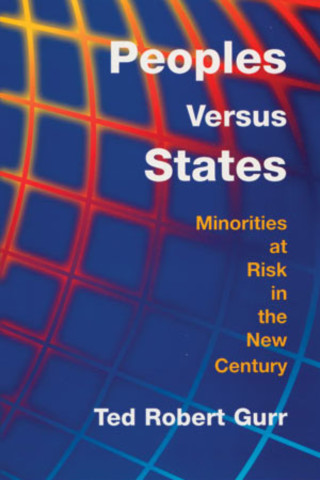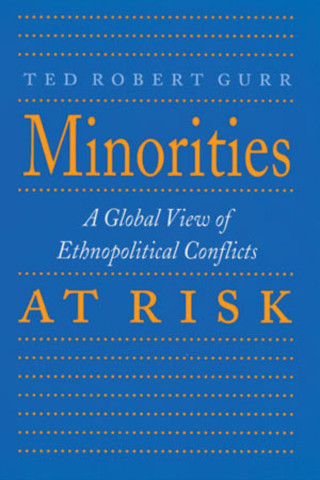Ted Robert Gurr
A pioneer in the field of political conflict and instability, Dr. Ted Robert Gurr was Professor Emeritus and Distinguished University Professor at the University of Maryland. He frequently collaborated with fellow START researchers and worked on the START project “Turning to Terrorism: Ethnic, Religious and Extremist Organizations” as well as the “Minorities at Risk” project, which he founded.
Author's Books
Picking up where Minorities at Risk left off, Peoples Versus States offers an expanded and updated perspective on ethnic and nationalist conflict throughout the world, as well as efforts to manage it.
Ted Gurr surveys the behavior of 275 politically active ethnic groups during the 1990s and pinpoints the factors that encourage the assertion of ethnic identities. Whereas his highly acclaimed 1993 book presented a disturbing picture of spreading ethnic violence, this volume documents a pronounced decline since the early 1990s—a decline attributable, in part at least, to many states abandoning strategies of assimilation and control in favor of policies of pluralism and accommodation.
Nonetheless, Gurr identifies some ninety groups as being at significant risk of conflict and repression in the early 21st century. And he cautions that the emerging global regime of principles and strategies governing relations between communal groups and states is far from perfect or universally effective.
The turmoil in Yugoslavia, the rebellions of the Kurds and Shi’is in Iraq, the ongoing struggle in South Africa—ethnic conflict continues unabated in many areas of the world.
To help us understand the persistence of such conflict, this pioneering work analyzes ethnopolitical conflict in every region of the globe. An ambitious and unprecedented effort, it provides a comprehensive survey of 233 politically active communal groups, plus in-depth assessments of ethnic tensions in the western democracies, the former Soviet bloc, the Middle East, and Africa.
By identifying these groups and examining their disadvantages and grievances, Minorities at Risk attempts to explain why disadvantaged groups mobilize, and it evaluates strategies that have successfully reduced ethnic conflict in the past, including autonomy, pluralism, and power sharing.
This provocative and well-written volume challenges conventional wisdom and raises the discussion about a widespread but little-understood phenomenon to a higher level.


